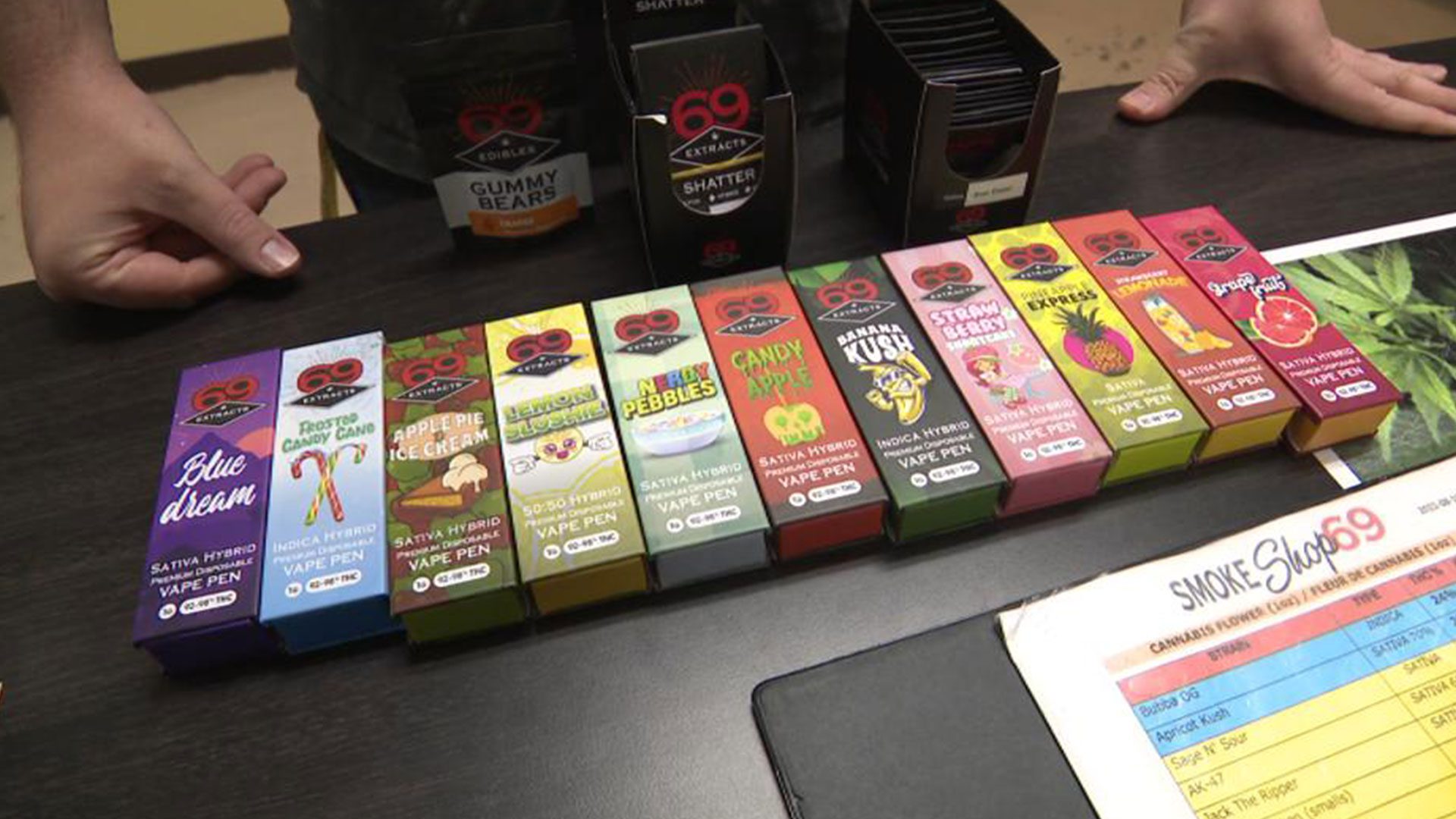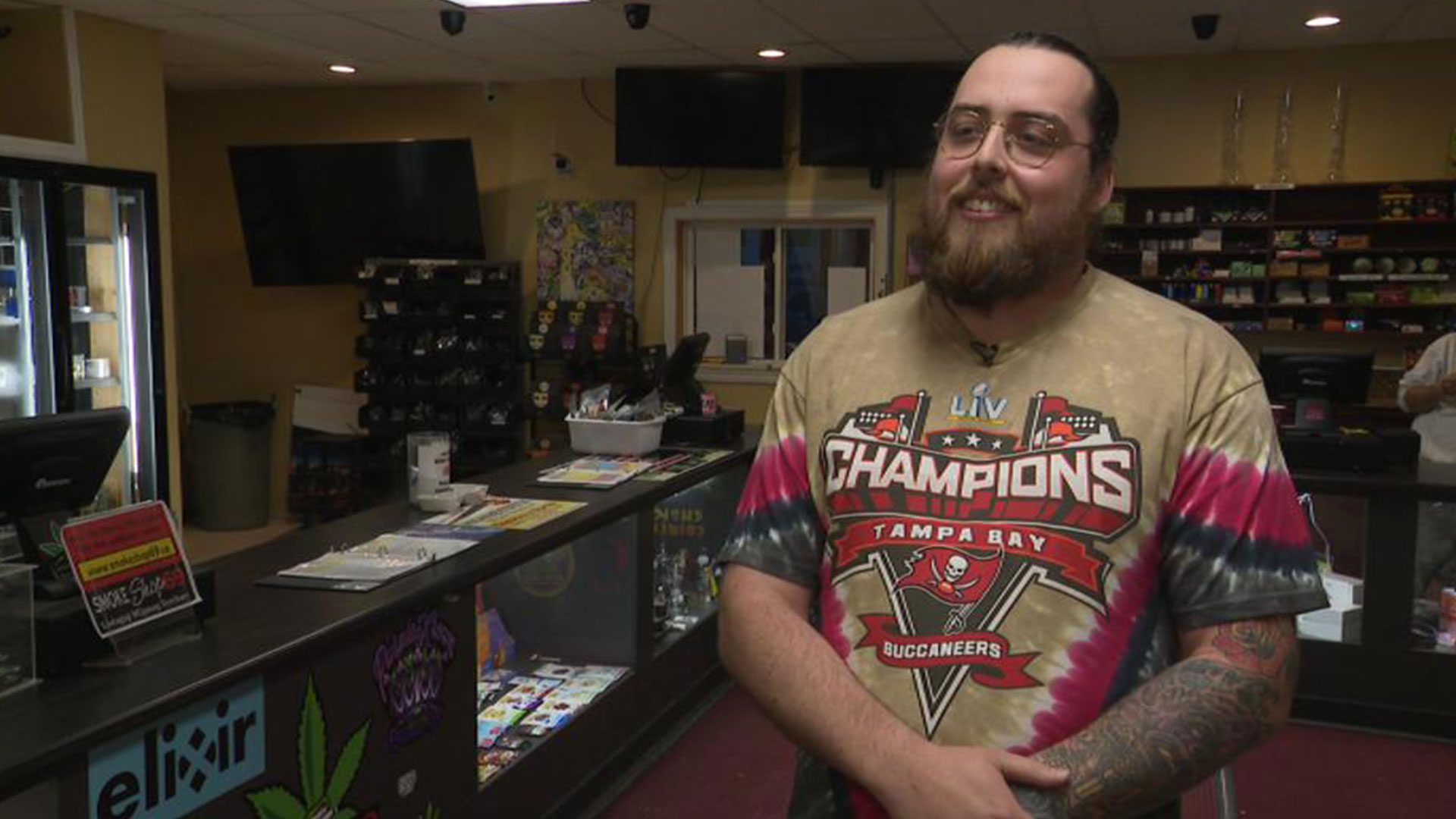A Mi’gmaq First Nation on the Quebec-New Brunswick border has seen its marijuana industry grow dramatically – and its Cannabis Office is trying to figure out how to manage the boom.
Weed shops have popped up across Listuguj since marijuana was legalized in Canada in 2018. Outside of First Nations, Quebec regulates the distribution and sale of cannabis in the province.
“They’ve, in essence, created a monopoly for their own government through their regime,” said Listuguj Mi’gmaq Government Chief Darcy Gray. “We, as a First Nation within the province of Quebec and Canada, are basically left out of that whole opportunity.”
So Listuguj members made their own opportunity, opening pot shops while the First Nation created a regulatory framework.
But in January 2020, provincial Quebec officers and local police raided weed stores in Listuguj for not having official licences. Store owners lost thousands of dollars in merchandise and faced trafficking and possession charges.

“Since the police raid, pretty much the community – well, a portion of the community – pushed back against that, and the next day we were granted temporary permits, and ever since then the cops haven’t been bothering us,” said Alexander Morrison, who owns Smokeshop 69 and is also a band councillor.
Morrison said his store sells about 300 ounces of weed a day. He’s also building the shop’s brand with his son, Joey, selling 69-branded vape pens, edibles and shatter.
“The cannabis rush is like the next gold rush,” said Joey, who runs the day-to-day operations. “So we’re proud to see it all unfold.
“There’s what – 14, 15 shops – like all the jobs that it’s bringing, all the outside money that it’s bringing into the community. We’re putting food on the table for families, everyone’s eating off of our business. It’s great for the community, everyone involved. Not just our business, but every other dispensary in the community as well.”
But Gray wants to find a way to capture some of the economic bounty of the cannabis industry for the community.

Consultations with the community were taking place to determine what that would look like and to determine if there should be further restrictions on certain cannabis products — but as of Wednesday night, the Listuguj band council passed a motion imposing a six-month moratorium on consultations and additional cannabis regulations.
“One of our oldest teachings is that you have to give back, so your first catch you’re supposed to give away,” said Gray. “If you’re hunting your first catch, you’re supposed to give part of that meat away. So when it comes to business, that principle to me should still apply.
“If there’s retail operations in the community that perhaps have the potential to cause harm, then there should be some sort of giving back and supporting the services, whether it be recreational programs or health-related programs, youth activities. For the most part our dispensary owners are doing that by choice, for now. To me I’d like to see it a little more structured and systematic.
Alexander and his son said they don’t have a problem giving back voluntarily, but are worried having one sole distributor – and more regulations – could inhibit their competitiveness with nearby First Nations.
“They’re talking about maybe having the band be a distributor for some products,” said Alexander. “If it’s some products, we’re OK with that, but we don’t want to be limited to one supplier, that just doesn’t make sense at all.”
For competition
“I’m all for competition,” added Joey, “if the band wants to do something that will bring in revenue for the community – great.
“My concern with our government managing it, you know, we’ve had things mismanaged by our government in the past, so I was never behind only the government doing it. If the government wants to do it, fine, but allow everyone else to do it, like a free market should be.”
Ultimately, both Gray and the Morrisons want to see a safe cannabis supply in the community.
“We’re all for having regulations that make sense,” said Alexander. “We don’t want to kill the gains that we’ve made. We managed to create a nice cannabis economy here in Listuguj.”









